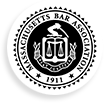Annual Gift Exclusion
Pursuant to the Internal Revenue Code (I.R.C.), the annual gift exclusion is the amount of a present interest gift that may be given tax-free from one individual (the “Donor”) to another individual (the “Donee”). The annual gift exclusion for 2014 is $14,000 per Donor. Therefore, a husband and wife could provide a joint tax-free gift of $28,000 per year to any number of Donees. Note: There is no gift tax implication triggered by gifts between spouses that are both U.S. citizens.
Applicable Exclusion Amount (commonly known as the “Unified Credit”)
The Applicable Exclusion Amount is the amount or value of property that a taxpayer may gift during life or leave at death free from Federal estate and gift taxes to anyone other than a spouse or a charity.
Beneficiary Designation
The person or organization you have specified in writing as the beneficiary who will receive the proceeds of a life insurance policy, savings account, Individual Retirement Account or other retirement plan upon the death of the owner. This designation supersedes any provisions included in an individual’s will.
Designation of Health Care Surrogate
A written document in which you appoint a surrogate to make health care decisions during any period of incapacity. During your incapacity, the surrogate may consult with appropriate health care providers, provide informed consent and make the necessary health care decisions that the surrogate believes you would have made under the circumstances, if you were capable of making such decisions.
Durable Power of Attorney
A Durable Power of Attorney is a document in which you appoint another individual (known as an attorney-in-fact) to act on your behalf and in your place in financial, business and personal matters. It allows the person to perform many acts, which includes, but is not limited to activities such as maintaining bank accounts and buying or selling property. This Durable Power of Attorney comes into effect when you sign the legal instrument and not upon a designated event such as your incapacity. A Power of Attorney that comes into effect, upon the occurrence of a disability, is known as a Springing Power of Attorney.
Irrevocable Trust
A trust, which, once established, generally cannot be amended or canceled. This type of trust typically provides certain tax advantages because all control over the assets contributed to the trust have been relinquished.
Lifetime Gift Tax Exclusion
The amount of cumulative gifts a Donor can make during his or her lifetime without triggering any gift tax liability. Currently, this amount is set at $5,340,000. Gifts made under the annual gift exclusion amount (see above) are not applied to the lifetime gift tax exclusion. However, when a Donor makes a gift in excess of the annual gift exclusion, the Donor is required to file a gift tax return. The amount in excess of the annual gift exclusion is applied toward the lifetime gift tax exclusion. No tax will be due on a gift until the Donor exceeds the lifetime gift tax exclusion.
Living Will
A document in which you specify which life-prolonging procedures you want, or do not want, to be taken in the event you become terminally ill or incapacitated. This document also designates a surrogate who is responsible for carrying out your wishes under the living will.
Marital Deduction
Individuals can make unlimited transfers of property to a spouse without incurring Federal estate or gift taxes. The deduction is not available for spouses who are not U.S. citizens, unless certain requirements are met in the provisions of a trust created for the benefit of a non-citizen spouse (See Qualified Domestic Trust).
Pour-over Will
When combined with a revocable living trust, a “pour over” will, serves as a “catch-all” to funnel remaining probatable assets to the revocable living trust in the event the decedent failed to properly title all probatable assets. Since one of the advantages of the pour-over will/revocable living trust is probate avoidance, it is imperative that the Grantor properly title all probatable assets to avoid the time and costs associated with filing a probate.
Probate and Non-Probate Property
Probate property is property owned in your own name that passes to your heirs or other beneficiaries pursuant to the terms of your Will or laws of intestacy. Non-probate property is property passing under an instrument that became effective at death and, therefore, does not pass under a Will. For example, non-probate property includes life insurance proceeds, benefits under an IRA or other retirement plan, property held as joint tenants, interests in a trust and payable-on-death accounts.
Revocable Living Trust
When combined with a pour-over will a Revocable Living Trust serves as a means to transfer assets upon death. The Grantor (also known as the “Settlor”) forms the trust with the ability to act as the initial trustee with full control and management authority over trust assets. Upon death, a successor trustee continues to manage trust assets according to the Grantor’s wishes or distributes trust assets outright to the designated beneficiaries.
Trust
A legal arrangement made by the person who establishes the trust (known as the “Grantor”) and transfers property to an individual or institution (known as the “Trustee”) to be administered for the benefit of himself or herself or another person (known as the “Beneficiary”).
Testamentary Trust
A trust created by a person’s will which becomes effective after his or her death, and stipulates how the assets are to be divided and when such assets are to be distributed to a beneficiary.
Will
A will is the legal document you can use to outline how you want your property and assets divided among your family members and other heirs. In your will, you can also name guardians for your children. Your will should also identify whom you want to serve as the executor of your estate. The executor will gather all your assets after you’re gone, ensure that a tax return is filed for your estate, and oversee the process of disbursing assets to your heirs.










